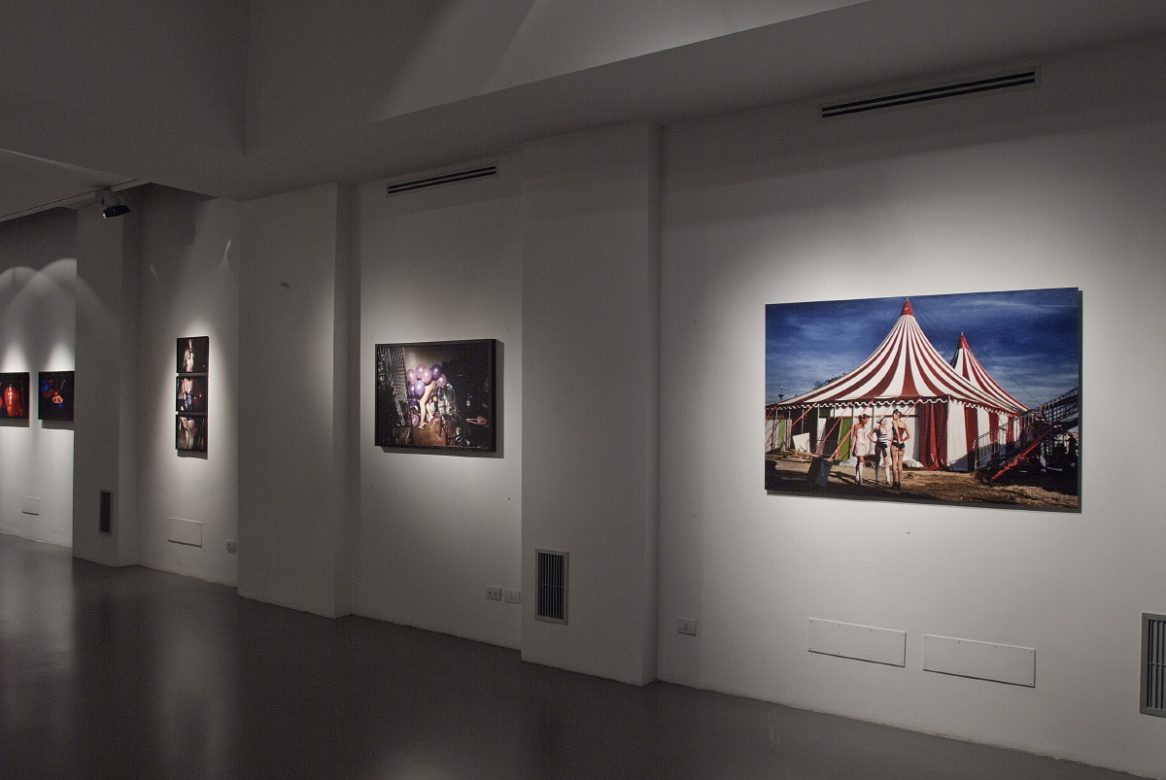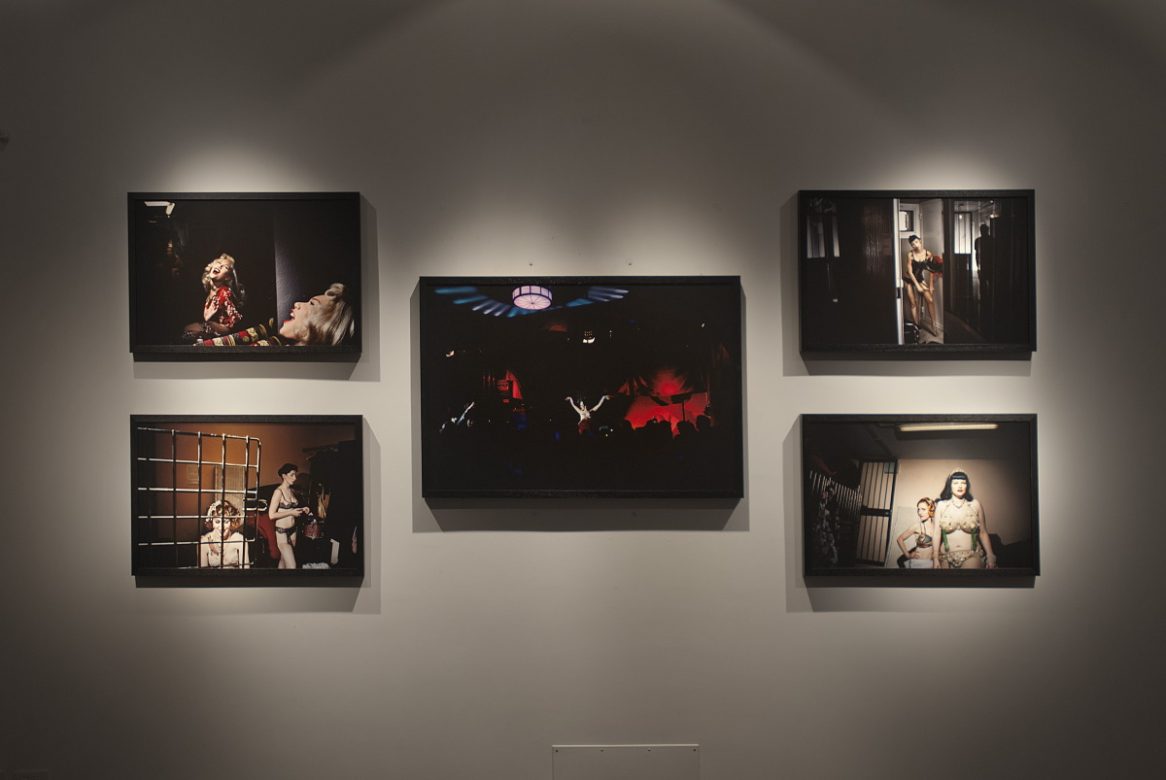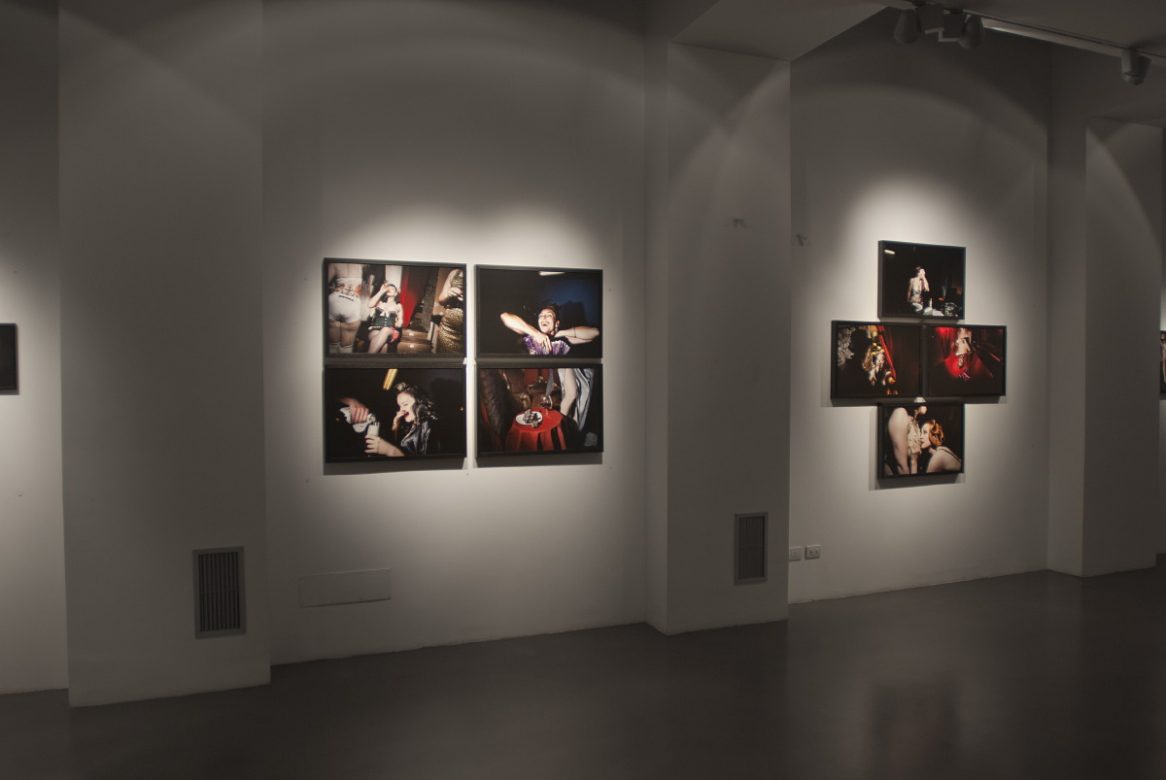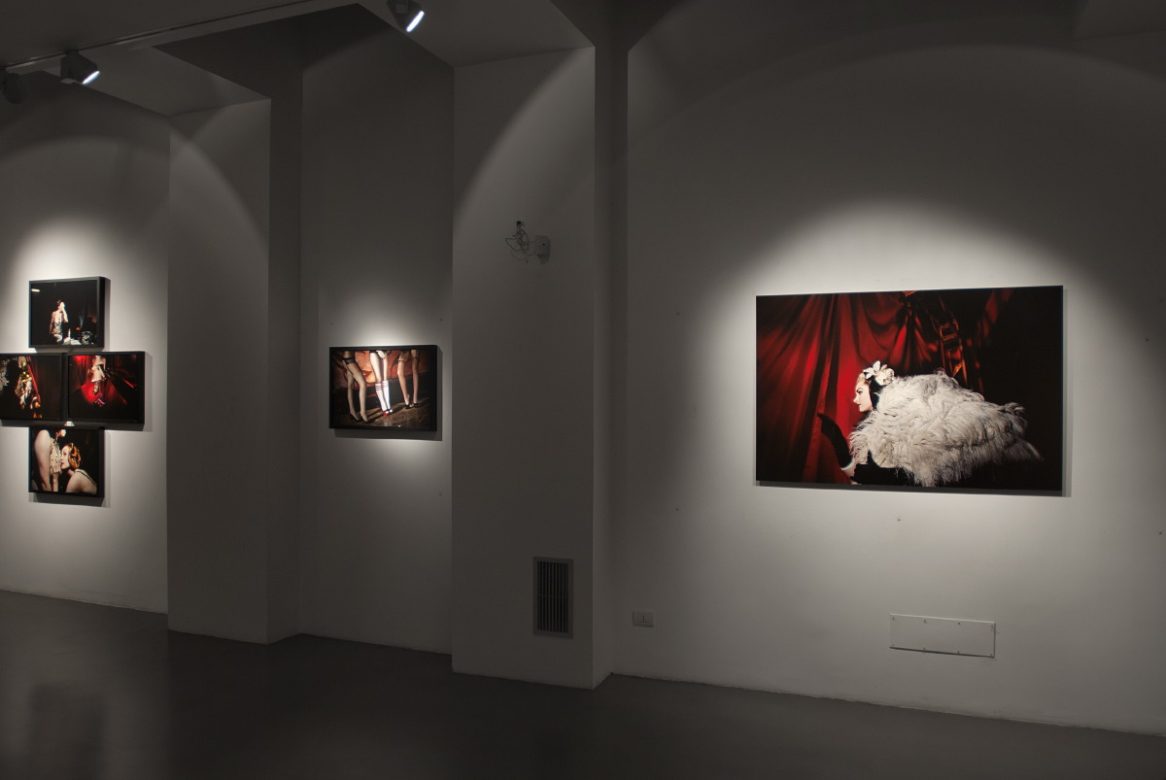10B Photography
19 February – 7 March 2010
10B Gallery
Via San Lorenzo da Brindisi 10a
Rome
With this exhibition, 10b Photography is launching a space that will be dedicated to the presentation of an undiscovered talent in photography.
The first photographer I have chosen is Giovanni Cocco, from Abruzzo. I have followed this young photographer’s progress for several years, and I have learned to appreciate his character and professionalism as well as, of course, his photography skills.
The exhibition presented here, Burladies, is the result of Giovanni’s work on a theme he has dedicated at least two years to: Burlesque.
Burlesque is a form of entertainment that originated in England in the mid-nineteenth century in which beautiful working class women mocked, or “burlesqued”, the era’s aristocracy through music, dance and irony.
With an eye that at first glance appears light-hearted and playful, the collection of photographs exhibited here tells the story of the success in our own country of “new burlesque”, a kind of performance that has ridden upon the wave of the recent “vintage” movement.
It would seem, therefore, that Giovanni has taken on a work of contemporary visual and cultural anthropology entirely focused on Italian society.
In fact, on closer reflection the images evoke original parallels between the genre of Burlesque and the growing emergence of the sensual, seductive and increasingly “playful” feminine figure at the disposal of the night manager; the director-general of a (television) network; the bored, wealthy freelancer; or the chairman of the board in need of affection…
Certainly today, in the age of TV showgirls and sex objects, a particular feminism, —one that fights for the assertion of women’s dignity and fundamental rights—seems to have faded for good.
In the genre of Burlesque, however, I see a courageous parody—interpreted by young women—of the increasingly assertive feminine figure in a masculine world.
And it is a bitter parody, made up of communal spaces that unquestionably acknowledge just how little Italian men think of women today.
With his lens and immense technical and creative prowess, Giovanni manages to become an interpreter of this parody. Despite belonging to the male world, he does not spurn the comparison and the challenge, leading us by the hand, almost in a dance, to view these women with fresh eyes, with eyes capable of glimpsing—beyond the mask—a rediscovered dignity.
Francesco Zizola, Rome, 2010.



